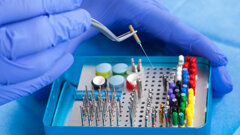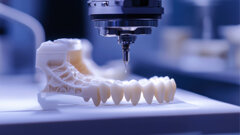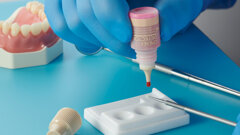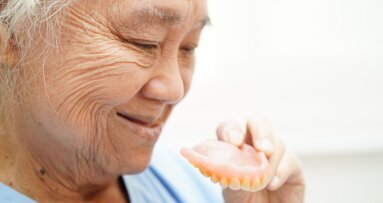COPENHAGEN, Denmark: A new interdisciplinary commentary by researchers in Denmark calls for dentistry to confront one of its most powerful but overlooked barriers to care: shame. Researchers argue that “dental shame”—the feeling of humiliation or self-consciousness linked to oral health—can shape behaviour, deepen inequalities and prevent people from seeking the very care they need to recover confidence and well-being.
The investigation of shame within the context of dental care is by no means a new thing. A study from 2004, for example, showed how feelings of social powerlessness and embarrassment were driving factors behind dental anxiety and resultant avoidance of care. Building on these foundational insights, the authors of the Danish article expand the focus to shame anxiety and give an overview of how shame operates across personal, social and systemic dimensions of oral health. In oral healthcare, it manifests when people feel judged for the condition or appearance of their teeth, their dental neglect or their lifestyle choices, such as smoking or diet. This emotion arises not only in dental settings but also in the course of everyday life, for example in social encounters and in interactions with wider health and social services.
The paper identifies dental shame as both a cause and a consequence of oral health problems. Embarrassment about dental neglect can lead to avoidance of care, which in turn worsens oral disease—creating a self-reinforcing spiral. The effects reach far beyond oral health, influencing employment prospects, self-esteem and even social participation.
Importantly, dental shame intersects with structural inequities. People experiencing poverty, trauma, homelessness or social marginalisation are disproportionately affected. The authors warn that fee structures, public messaging and even clinical interactions can unintentionally amplify shame and exclusion.
To address this, the paper calls for shame-sensitive practice across dentistry and other fields of healthcare. This includes cultivating the ability to recognise and respond empathetically to shame dynamics in clinicians, educators and policy designers. By understanding how shame operates, professionals can create more inclusive and non-judgemental environments that foster trust and engagement. The authors suggest that, ultimately, tackling dental shame offers a route to improved oral health outcomes, greater health equity and more compassionate dentistry—transforming not only smiles but lives.
The commentary, titled “Dental shame: A call for understanding and addressing the role of shame in oral health”, was published online on 21 September 2025 in Community Dentistry and Oral Epidemiology, ahead of inclusion in an issue.
Topics:
Tags:
SHEFFIELD, UK: In a first-of-its-kind study, researchers from the University of Sheffield have investigated patients’ emotional challenges in being ...
MELBOURNE, Australia: Tooth loss can have a profound impact on social interactions and self-esteem. While poor oral health is known to be associated with ...
MEDFORD, Mass., US: Stress can present as a wide range of physical, emotional and social symptoms, such as irritability, headache, anxiety and elevated ...
STRASBOURG, France: Dental anxiety is a widespread concern in paediatric dentistry, often leading to treatment interruption or even the complete avoidance ...
Live webinar
Tue. 24 February 2026
1:00 pm EST (New York)
Prof. Dr. Markus B. Hürzeler
Live webinar
Tue. 24 February 2026
3:00 pm EST (New York)
Prof. Dr. Marcel A. Wainwright DDS, PhD
Live webinar
Wed. 25 February 2026
11:00 am EST (New York)
Prof. Dr. Daniel Edelhoff
Live webinar
Wed. 25 February 2026
1:00 pm EST (New York)
Live webinar
Wed. 25 February 2026
8:00 pm EST (New York)
Live webinar
Tue. 3 March 2026
11:00 am EST (New York)
Dr. Omar Lugo Cirujano Maxilofacial
Live webinar
Tue. 3 March 2026
8:00 pm EST (New York)
Dr. Vasiliki Maseli DDS, MS, EdM



 Austria / Österreich
Austria / Österreich
 Bosnia and Herzegovina / Босна и Херцеговина
Bosnia and Herzegovina / Босна и Херцеговина
 Bulgaria / България
Bulgaria / България
 Croatia / Hrvatska
Croatia / Hrvatska
 Czech Republic & Slovakia / Česká republika & Slovensko
Czech Republic & Slovakia / Česká republika & Slovensko
 France / France
France / France
 Germany / Deutschland
Germany / Deutschland
 Greece / ΕΛΛΑΔΑ
Greece / ΕΛΛΑΔΑ
 Hungary / Hungary
Hungary / Hungary
 Italy / Italia
Italy / Italia
 Netherlands / Nederland
Netherlands / Nederland
 Nordic / Nordic
Nordic / Nordic
 Poland / Polska
Poland / Polska
 Portugal / Portugal
Portugal / Portugal
 Romania & Moldova / România & Moldova
Romania & Moldova / România & Moldova
 Slovenia / Slovenija
Slovenia / Slovenija
 Serbia & Montenegro / Србија и Црна Гора
Serbia & Montenegro / Србија и Црна Гора
 Spain / España
Spain / España
 Switzerland / Schweiz
Switzerland / Schweiz
 Turkey / Türkiye
Turkey / Türkiye
 UK & Ireland / UK & Ireland
UK & Ireland / UK & Ireland
 Brazil / Brasil
Brazil / Brasil
 Canada / Canada
Canada / Canada
 Latin America / Latinoamérica
Latin America / Latinoamérica
 USA / USA
USA / USA
 China / 中国
China / 中国
 India / भारत गणराज्य
India / भारत गणराज्य
 Pakistan / Pākistān
Pakistan / Pākistān
 Vietnam / Việt Nam
Vietnam / Việt Nam
 ASEAN / ASEAN
ASEAN / ASEAN
 Israel / מְדִינַת יִשְׂרָאֵל
Israel / מְדִינַת יִשְׂרָאֵל
 Algeria, Morocco & Tunisia / الجزائر والمغرب وتونس
Algeria, Morocco & Tunisia / الجزائر والمغرب وتونس
 Middle East / Middle East
Middle East / Middle East






































To post a reply please login or register